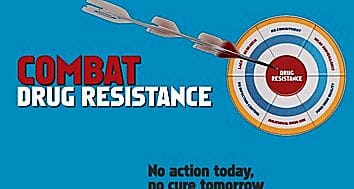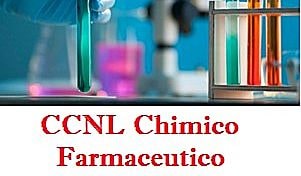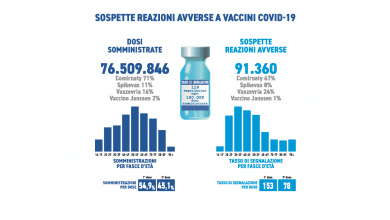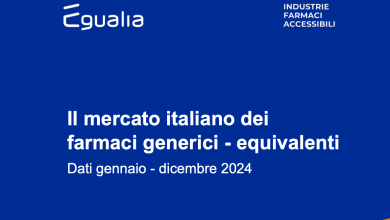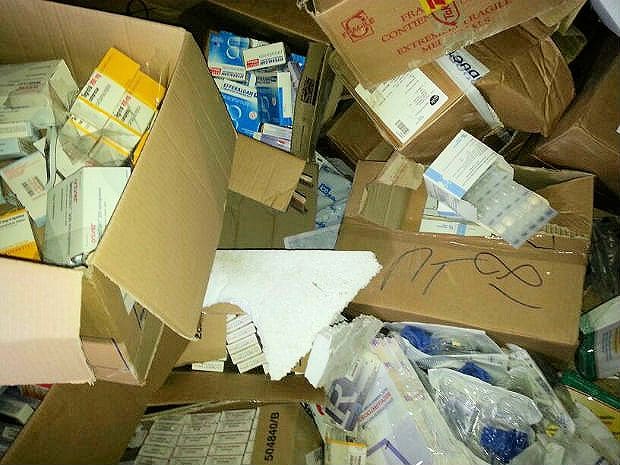
An APMAR survey reveals that the 70% of the population takes medicines without a prescription, the 60% does not throw expired medicines in the appropriate container and the 70% does not check if a medicine is already in their possession before having a new package prescribed, with damage to the National Health Service which reimburses the 75% of national pharmaceutical expenditure.
Thursday, May 12, 2016 – APMAR information
 Milan, May 12, 2016 - With an annual national expenditure for the purchase of drugs of 26.6 billion euros, equal to about 438 euros per capita, as noted by the AIFA-OSMED 2014 national report, National Observatory on the use of drugs , it emerges that Italians abuse drugs, especially anti-inflammatories and antibiotics, not considering the damage this entails in terms of personal and environmental health but also sustainability for the NHS. Considering that in 2014 1.9 billion packs of medicines were dispensed in Italy and that, according to the findings of the World Health Organization1, the 50% of patients suffering from chronic diseases in developed countries do not adhere to therapeutic prescriptions, tens of millions of drugs are bound to end up in the trash sooner or later.
Milan, May 12, 2016 - With an annual national expenditure for the purchase of drugs of 26.6 billion euros, equal to about 438 euros per capita, as noted by the AIFA-OSMED 2014 national report, National Observatory on the use of drugs , it emerges that Italians abuse drugs, especially anti-inflammatories and antibiotics, not considering the damage this entails in terms of personal and environmental health but also sustainability for the NHS. Considering that in 2014 1.9 billion packs of medicines were dispensed in Italy and that, according to the findings of the World Health Organization1, the 50% of patients suffering from chronic diseases in developed countries do not adhere to therapeutic prescriptions, tens of millions of drugs are bound to end up in the trash sooner or later.
 "The awareness campaign for a conscious and waste-free use of the drug - Green HEALTH, make a difference, which benefits from the partnership of AIFA, the Italian Medicines Agency, he explains Antonella Celano, President of APMAR, National Association of People with Rheumatic Diseases, which managed the pilot phase of the project in the Apulian area, has the aim of creating a new social vision of the importance of conscious and waste-free use of the drug. From a questionnaire that we distributed to about 2000 people involved in the two years in which the project was carried out, it emerged that the 70% of the population takes medicines without a medical prescription, the 60% does not throw the expired medicines in the appropriate container and the 70% does not check if a drug is already in his possession before having a new pack prescribed, with damage to the National Health Service which reimburses 75% of the national pharmaceutical expenditure ".
"The awareness campaign for a conscious and waste-free use of the drug - Green HEALTH, make a difference, which benefits from the partnership of AIFA, the Italian Medicines Agency, he explains Antonella Celano, President of APMAR, National Association of People with Rheumatic Diseases, which managed the pilot phase of the project in the Apulian area, has the aim of creating a new social vision of the importance of conscious and waste-free use of the drug. From a questionnaire that we distributed to about 2000 people involved in the two years in which the project was carried out, it emerged that the 70% of the population takes medicines without a medical prescription, the 60% does not throw the expired medicines in the appropriate container and the 70% does not check if a drug is already in his possession before having a new pack prescribed, with damage to the National Health Service which reimburses 75% of the national pharmaceutical expenditure ".
In fact, few wonder what happens to drugs that are thrown away: scientific literature explains that drugs can be considered ubiquitous environmental pollutants, which contaminate the environment through a myriad of widespread sources of pollution. Once administered, many drugs are not metabolized and can be excreted as such in urine and faeces. Tens of thousands of tons of drugs are sold in Italy, and it is known that many of these are not actually used but are mistakenly thrown away in the trash, thus contributing to contaminating the environment and especially the waters.
“We have learned that the 60% of the population does not throw expired medicines in the appropriate containers, explains Celano, and we can only imagine how few people know that, to be disposed of correctly, it is enough to follow a few simple rules:
- drugs must be removed from their original container and thrown into the containers in front of the pharmacies
- paper and cardboard packaging should be disposed of in the paper and plastic and metal blisters together with the plastic
- in the case of liquid medicines (syrups, vials, etc.) it is better to place the entire glass container in the bin in front of the pharmacies
- if in doubt, always ask the pharmacist”.
“The experience of these two years, continues Celano, remains as a sort of inheritance through the information booklet “Guide to the conscious use of medicines” created thanks to the know-how learned and disseminated to citizens through the various initiatives put in place. In it we deal in a simple and practical way with the main issues concerning the relationship between the drug and the consumer: the use, conservation and disposal of the drug”.
 "The booklet will be distributed by all the project partners, the APMAR offices, the URP centres, the Medical Orders and above all, coherently with its "green" vision, it will be downloadable from the APMAR website (www.apmar.it) and from partner sites. The guide will be translated into English and distributed through the associations that deal with immigration, concludes Antonella Celano”.
"The booklet will be distributed by all the project partners, the APMAR offices, the URP centres, the Medical Orders and above all, coherently with its "green" vision, it will be downloadable from the APMAR website (www.apmar.it) and from partner sites. The guide will be translated into English and distributed through the associations that deal with immigration, concludes Antonella Celano”.
“We have given our partnership to the Green Health project, says Luca Pani, AIFA general manager, because it is in line with the agency's philosophy which aims to create opportunities for dialogue between all the interlocutors in this sector: patients, doctors, drug manufacturers and other European regulatory bodies. The first step to take is to build a new drug culture and AIFA has long been committed to supporting tools and strategies to create greater awareness among citizens on the use of drugs, which will certainly be stimulated by reading this useful brochure ”.
The Green Health Project is funded by the Fondazione con il Sud and has the support of the Province of Lecce, the Municipality of Lecce, Cisl Lecce, the Order of Pharmacists, ANOLF, the Emmanuel Community, the Città Nostra Association and the Miriads 49 as a partner and under the patronage of ASL Lecce.
1-Adherence to long-term therapies: problems and possible solutions, WHO 2003
Press office
HealthCom Consulting
Maria D'Acquino 346 6435192 – maria.dacquino@hcc-milano.com
Carlotta Freri 02 87399 174 – carlotta.freri@hcc-milano.com

